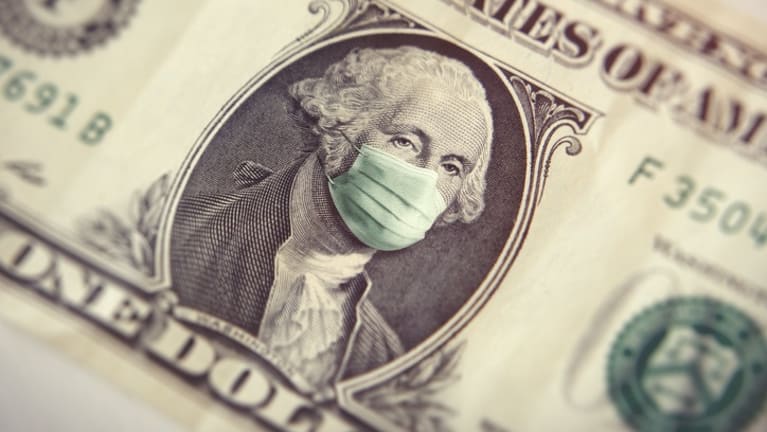
By Stephen Miller, CEBS | November 17, 2020
More organizations shift from across-the-board increases to variable pay models
The economic effects of COVID-19 have forced nearly half of organizations (45 percent) to re-evaluate salary increase plans for 2021, new survey findings show.
Researchers collected data from 1,283 U.S. organizations during July and August for benefits advisory and brokerage firm Gallagher's 2020/2021 Salary Planning Survey report.
At the start of 2020, two-thirds (66 percent) of surveyed employers had awarded pay raises, as organizations felt primed for growth with a robust economy and record-high employment. By the end of the first quarter, however, the reality of COVID-19 had set in, forcing many employers to put the brakes on wage hikes.
This trend will continue into 2021, according to surveyed employers.
Among the segment of employers that indicated COVID-19 has forced them to re-evaluate 2021 salary increase plans, half (51 percent) expect to reduce salary increases, and 45 percent plan to suspend salary increases altogether.
According to the report:
- For 2020, salary increase budgets will end up rising 2.5 percent, down from earlier projections of a 2.8 percent average increase.
- For 2021, Gallagher projects average salary budget increases of 2.1 percent, with variations by employee group (see chart below) as well as by location and industry.
Average Fiscal Year Salary Increase Budgets by Employee Group
| |
2020 |
2021 |
| Executives |
2.3% |
2.0% |
| Managers |
2.6% |
2.1% |
| Other exempt workers |
2.6% |
2.1% |
| Nonexempt workers |
2.6% |
2.2%
|
Source: Gallagher's 2020/2021 Salary Planning Survey report.
Shift Toward Variable Pay
As an alternative to salary increases, variable pay, such as annual bonuses, "can save money and serve as an investment in future success," according to Gallagher's report.
"Revenue streams and budgets will be unpredictable in 2021, and for these reasons, many employers are pausing across-the-board salary increases," said William F. Ziebell, CEO of Gallagher's benefits and HR consulting division. "However, the data shows more employers are leaning into variable pay models because this allows them to provide employees with a pay increase based on performance."
The researchers found that 40 percent of respondents use variable pay for at least one employee group. In addition:
- 57 percent don't anticipate changing their variable pay budgets for 2020 despite the pandemic.
- 73 percent don't anticipate changing their variable pay budgets for 2021.
The benefits of variable pay, according to the report, include increasing employee productivity by linking compensation to organizational success while avoiding long-term costs by not adjusting base-pay levels upward.
Incentive Pay Pointers
"Organizations can be prudent in protecting themselves from overpaying under an incentive plan during challenging economic times," said Bob Lindeman and Linda VanDeventer, managing director and co-founder and director of compensation consulting, respectively, of The Overture Group, a boutique executive compensation and search firm that specializes in privately held, small-market organizations.
Lindeman and VanDeventer advise organizations to take the following steps:
- Review who is participating in the plan.
Reducing plan participants is a simple way to reduce potential cost, they noted. "Most legal plan documents and employee communications state—and if not, should state—that management reviews and selects the participants in the plan annually. Stating this fact tempers the expectations of employees, albeit it is a drastic change to implement," they noted.
- Examine the plan's threshold, target and maximum payouts.
Reducing a payout maximum as a percent of salary, such as from 250 percent to 150 percent, can curb excessive payouts. "Participants will likely notice such a change, but if communicated effectively, plan participants should respect that an organization does not have a bottomless checkbook, especially in the era of COVID," Lindeman and VanDeventer said.
Similarly, raising the payout threshold percentage, for example from meeting 60 percent of a targeted goal to 80 percent, "is another effective method to modify the plan while still keeping it motivational," they suggested. Increasing the target performance required for a payout in the financial formulas can ensure "the organization will have enough profit dollars to afford the payout."
Financial Sector Rewards
In at least one area of the U.S. economy, the financial sector, employees may find both salary increases and annual bonuses under pressure.
Year-end incentive payments in the U.S. financial sector are expected to be lower compared with last year, according to an analysis by Johnson Associates, a compensation consulting firm. "The pandemic is wreaking havoc on many parts of the U.S. economy this year, and the financial services industry is no exception," said Alan Johnson, managing director of the firm.
"Unfortunately, as we look to 2021, even with an optimistic vaccine path, the pandemic will continue to negatively influence businesses, but perhaps to a lesser degree than in 2020," Johnson said. "Headcount reductions will continue in the first half as companies transform and adapt. For 2021, we expect some stabilization with early projections for modest salary increases and flat to slightly increased incentives."
***** ***** ***** ***** *****
Source: Society for Human Resource Management (SHRM)
https://www.shrm.org/resourcesandtools/hr-topics/compensation/pages/fewer-workers-will-get-pay-raises-in-2021-as-bonuses-gain-ground.aspx
